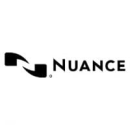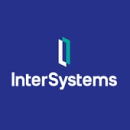Ambitious software engineers often find themselves stuck.
Forced to choose between accepting a management position they don’t want or staying where they are with no potential for growth, it’s understandable why many seek a third option. The traditional career path in software engineering dictates that wanting to maintain your status as an individual contributor is a dead end, but transitioning into management is a sobering prospect for those with no interest in a people-focused career.
Years of training and dedication to a technical craft will not necessarily set someone up for success as a people leader. Professional development is not a one-size-fits-all track, so what happens to the best and brightest who simply wish to focus on the art of coding?
Fortunately, there are a range of companies expanding their opportunities for development in the software engineering space, finally shining a light at the end of the tunnel for talented individual contributors. Built In Boston sat down with four industry leaders to talk about their own professional growth and the options available to software engineers at their companies — even for the ones who wish to focus on their technical skills.
Tell us a bit about your career journey thus far. How long have you been working as a software engineer and what types of roles have you held?
I joined Nuance through an acquisition in November 2017. At my previous company, I held one of the primary roles responsible for all of the engineering work for our suite of products. After becoming part of the Nuance family, I moved into a product management position where I was focused on fast-tracking our machine learning processes for our major healthcare product lines. Most recently, I’ve transitioned to a security and engineering role within our healthcare R&D team, where I partner closely with our risk management framework group, lead the development of our EHR integrations for our Dragon Ambient eXperience (DAX) suite and am heavily involved in maintaining our HITRUST Certification efforts.
Management isn’t for everyone, but many engineers feel it can be difficult to progress in their career without making the jump. How have you navigated conversations about career growth with your managers?
In my career, I have primarily worked with startup companies, so climbing a corporate ladder is very unfamiliar territory for me. I owe my career growth at Nuance to my managers — they recognize that my contributions to Nuance are significant and they have rewarded me as a result.
Personally, I really enjoy learning new programming languages or frameworks and then quickly applying them to something tangible. I make sure not to turn down any opportunities presented to me, which at times can lead to feeling like I’m spread a little too thin, but it’s well worth it. I spend time with other engineers at Nuance to learn more about their systems and challenges and take advantage of Nuance’s learning platforms like PluralSight and O’Reilly. I am always looking for ways to get involved in new projects, even if I have little or no prior experience with the development paradigm. There are so many opportunities for personal development and growth and I’ve really focused on proactively seeking those out.
I make sure not to turn down any opportunities presented to me, which at times can lead to feeling like I’m spread a little too thin, but it’s well worth it.”
What types of growth opportunities exist at your company for software developers who want to remain in an individual contributor role? How have you grown in your time with the company?
Nuance is a place where you decide where to go with your career. It has been my experience that good ideas are rarely passed up and I have always been encouraged by my managers to insert myself into the architectural decisions that are made in the DAX program. My ultimate goal is to one day become a fellow through our Nuance Fellow Program, which recognizes leaders with deep technical and industry experience who have made major contributions to Nuance and the broader technology community.

Tell us a bit about your career journey thus far. How long have you been working as a software engineer and what types of roles have you held?
I majored in mathematics. InterSystems is a strong believer in training people, especially because we have our own proprietary language, so they were willing to hire me into this role and provide the training that I needed to become a software developer. I’ve been with the company for nine years, and I’ve been working as a software developer the whole time. I’ve focused on an area of our product — the interoperability piece. The name has changed a bit, the technology has grown and the work has enabled me to learn and grow alongside it.
I get to do more things that are not management while still retaining that hands-on-keyboard element.”
Management isn’t for everyone, but many engineers feel it can be difficult to progress in their career without making the jump. How have you navigated conversations about career growth with your managers?
At InterSystems, it’s probably easier than at a lot of other places to not feel the push to become a manager. We have a relatively flat structure and we have a lot of developers who have been in their role at the company for thirty or more years. It’s easy to see that there is a path forward without going into management. I’ve never been pushed in that direction, but I definitely have conversations with my manager about how to expand my knowledge within my product. As a result, I’ve added some mentoring, working with interns and contributing to the hiring process to my role, in addition to writing code. I get to do more things that are not management while still retaining that hands-on-keyboard element. I get to write code and learn about other areas.
What types of growth opportunities exist at your company for software developers who want to remain in an individual contributor role? How have you grown in your time with the company?
We recently established new titles to describe career growth. We’ve recognized that some developers have more experience than others and we’ve made that more official with descriptions that explain how that trajectory works. At InterSystems, we start off as a developer, then become a senior developer, principal developer and finally a distinguished developer. The average person who holds the distinguished developer title has been with the company for 25 years, so I still have a ways to go before I can get there.
Each role comes with more responsibility and expectations of independence, as well as mentoring other people, growing what you know, being recognized as an expert, interfacing directly with customers and pushing the boundaries of what we do. It’s about understanding the big picture and what’s going on in the market.
Tell us a bit about your career journey thus far. How long have you been working as a software engineer and what types of roles have you held?
I’ve been working professionally as a software engineer for about five years. I started at Wistia as an entry level engineer and am now working as a staff engineer. I’ve had the opportunity to contribute to various teams across Wistia’s stack, from our main hosting application to working on our video and audio players. Most recently, I’m the tech lead on a team that’s working on features for our end-to-end video platform.
I’d say that the most important thing an engineer can do to push their career forward is to pick up the piece of work that they find challenging or intimidating.”
Management isn’t for everyone, but many engineers feel it can be difficult to progress in their career without making the jump. How have you navigated conversations about career growth with your managers?
I’ve found it best to be clear about what I want from my career and to communicate those goals to my manager. Wistia has a defined individual contributor track that is different from the management track, and that clarity has helped when it comes to looking for growth opportunities that wouldn’t push me into management. As I’ve gained experience, I’ve had more chances to have a multiplying effect without entering management, whether it’s through scoping out projects, facilitating cross-team endeavors or considering business goals and customer impact when building features. Staying at Wistia for multiple years has allowed me to better understand the history of our tech stack and our customer needs in order to see how my work fits into other areas of the product. I’d say that the most important thing an engineer can do to push their career forward is to pick up the piece of work that they find challenging or intimidating.
What types of growth opportunities exist at your company for software developers who want to remain in an individual contributor role? How have you grown in your time with the company?
Earlier on in my career, I was given some specific upcoming features to scope and de-risk, planning out the sequencing and providing support for colleagues who were picking up individual tickets. It was a great way to truly own a project and learn to anticipate and design solutions for areas of complexity. Another area of opportunity at Wistia is within our incident response team. Responding to incidents pushed me to learn about our infrastructure, facilitating postmortems gave me a broader understanding of how everything fits together, and running the monthly meetings allowed me to think more broadly about the role of incident response at Wistia. Over my time at Wistia, I’ve increased my impact from being focused primarily on my work to focusing on my team’s output, and rather than planning week to week, I’m keeping in mind business objectives for the next months and year.
Tell us a bit about your career journey thus far. How long have you been working as a software engineer and what types of roles have you held?
I’ve been a software engineer for 11 years now. I started programming as a child with a program called HyperCard, which enabled me to make games and interactive experiences. I then went on to study computer science in college, where I became fascinated by programming language theory. I’ve also been interested since my teenage years in music, music technology and synthesizers. When I graduated and was looking for a job, it seemed fun to combine my background in programming with my interest in music technology. I’ve been in the space of music and audio software ever since.
Working in a domain I’m truly interested in makes it easy to stay passionate about the products and customers. It’s very rewarding to see my musical heroes use products I’ve contributed to, but it’s probably more gratifying to make technology that inspires people to get started making music.
I’ve been with iZotope for seven years, so I’ve spent the majority of my career here — I started as a senior software engineer and now work as a principal software engineer. In that time I’ve worn several hats on several teams, from being a signal processing specialist, to project tech lead, to my current role as an architect.
Management isn’t for everyone, but many engineers feel it can be difficult to progress in their career without making the jump. How have you navigated conversations about career growth with your managers?
To me, the most important progression for an individual contributor is expanding the impact of your contributions. When I started my career, I would think mostly about how to fix a specific bug or implement a specific feature. Over time, that scope expanded into considering what would make a successful release or product. These days, I’m focused on the systems and capabilities that enable other engineers to succeed and be productive.
I’m lucky to have worked with teams I believe in and on products with customers that I care about. Most of my motivation over the years has been driven by the desire to make life better for customers and teammates, rather than any desire to progress my career for its own sake. Discovering paths to create an impact is an area where the perspective of my managers has been really helpful, as they have often seen opportunities that hadn’t been apparent to me. I’ve also found opportunities to grow by staying informed about technology developments outside of my company or niche and bringing in new ideas. I enjoy tinkering with personal projects outside of work and sometimes the ideas that I discover during those projects turn out to be surprisingly relevant at work.
The most important progression for an individual contributor is expanding the impact of your contributions.”
What types of growth opportunities exist at your company for software developers who want to remain in an individual contributor role? How have you grown in your time with the company?
IZotope is committed to making the space for developers to learn and grow as individual contributors. This is baked into the culture of the engineering department and shows up in many ways. We have weekly tech talks on various topics and specialist groups called “chapters” that serve as supportive communities where engineers can deepen their experience in areas like signal processing or user interface programming. Managers and team leads are actively looking for ways to help engineers stretch themselves by working on new technologies or giving them ownership of features or projects. This culture of learning and collaboration is one of my favorite parts of the job.












